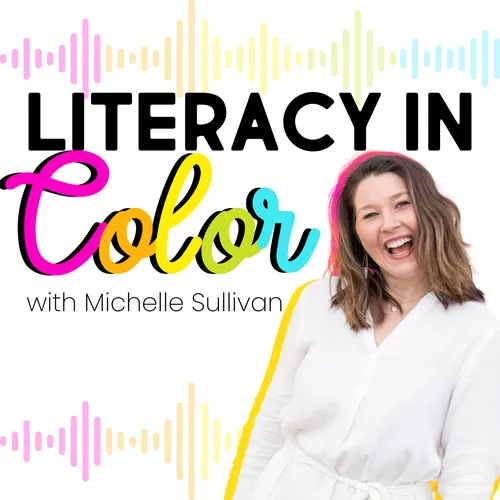52. Phonemic Awareness Research Unpacked with Dr. David Kilpatrick
- Author
- Michelle Sullivan • Literacy Coach & Science of Reading Advocate
- Published
- Tue 02 Sep 2025
- Episode Link
- https://www.michelleandthecolorfulclassroom.com/podcast/52
In this pivotal episode of Literacy in Color, Michelle is joined by psychologist, professor, and reading researcher Dr. David Kilpatrick to untangle some hotly debated ideas surrounding phonemic awareness in the Science of Reading community.
This conversation isn’t about taking sides in the “with letters vs. without letters” debate. It’s about getting honest about what the research says, and more importantly, what our individual students truly need.
For most children, phonemic awareness develops naturally through phonics instruction. However, for others, particularly those with a phonological core deficit, explicit, oral-only phonemic awareness instruction can be critical.
Dr. Kilpatrick clarifies the National Reading Panel findings, unpacks common misinterpretations of his own work, and reminds us to focus on what matters most: meeting the needs of the learner in front of us.
Key Takeaways:
- How phonemic proficiency fuels orthographic mapping, which is essential for fluent word reading
- For typically developing readers, phonemic awareness develops through learning an alphabetic writing system (i.e. Phonemic Awareness with letters!)
- It’s beneficial to integrate phonemic awareness and phonics
- Students with phonological core deficits may need oral-only instruction, particularly in intervention settings
- Phonemic awareness tasks should only take a few minutes a day - they’re not meant to be long, isolated blocks
- What educators often get wrong about Kilpatrick’s work and what he wishes more people knew
Resources & References Mentioned:
- Look into Appendix F of the National Reading Panel
- Table of Types of PA Tasks
- Phoneme Manipulation Quotes Across the Decades
- WIAT-4 Phonemic Proficiency Results (Single Slide)
- Teaching Phonemic Awareness in 2024: A Guide for Educators
- Equipped for Reading Success by Dr. David Kilpatrick
- Essentials of Assessing, Preventing, and Overcoming Reading Difficulties by Dr. David Kilpatrick
- The PAST Tense
- Shanahan’s Blog: RIP to Advanced Phonemic Awareness (meaning the term should be abandoned)
This post may contain affiliate links, which means if you click on a link and make a purchase, I may earn a small commission at no additional cost to you. Thank you for supporting the podcast!
Connect with Me:
- Follow me on Instagram: @michelle_thecolorfulclassroom & @logosliteracyacademy
- Join our Facebook Community
- Sign up for my Newsletter
- Shop on TPT: The Colorful Classroom
- Visit: www.michelleandthecolorfulclassroom.com
- Join The COLORFUL Literacy Toolkit Membership
Interested in Learning More about Morphology?
- Take our Course: Mastering Morphology: Foundations for Every Educator
